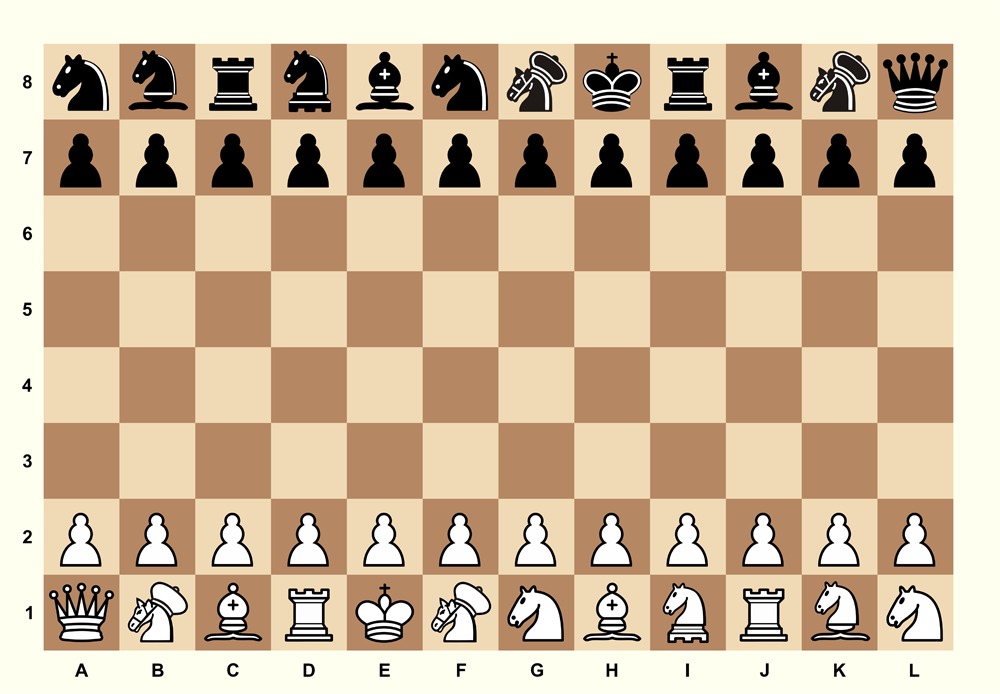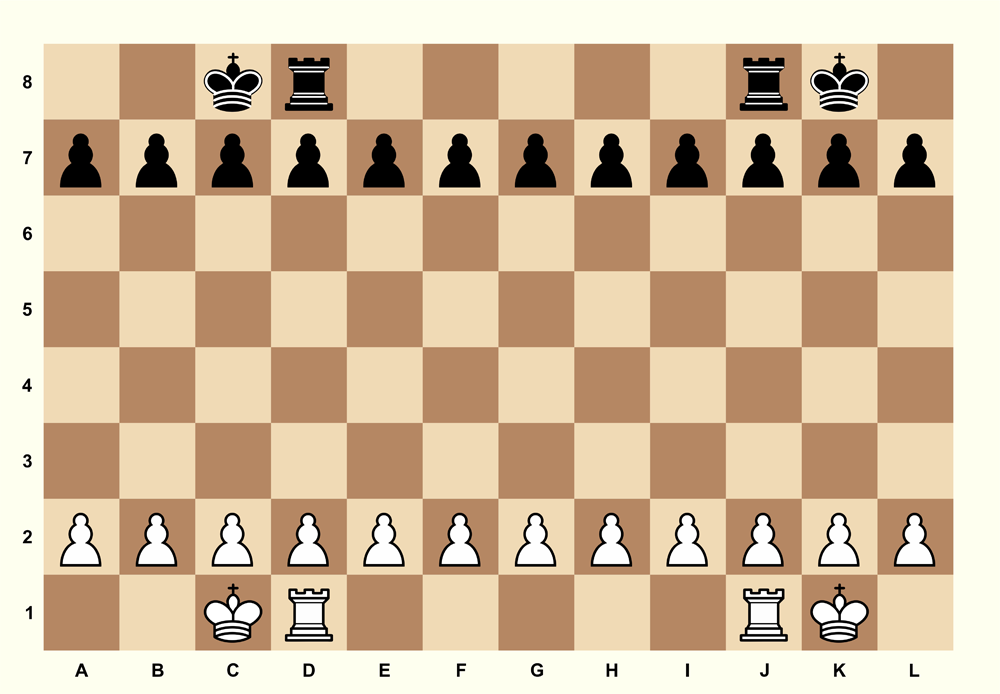Battlefront Chess
BATTLEFRONT CHESS is a chess variant similar to Capablanca Chess and variants such as Carrera's Chess, Bird's Chess, and Gothic Chess.
First of all, in Battlefront Chess, just like in Capablanca Chess, in addition to the pieces used in Standard Chess, the Chancellor and Archbishop are also used. Just like in Capablanca Chess, in Battlefront Chess too, the Chancellor moves and attacks as a Rook or Knight, and the Archbishop as a Bishop or Knight. However, Battlefront Chess is played on a larger board with 12 files and 8 ranks that is practically identical to that of Courier Chess, and therefore the board has four more white and black pieces on it. Both sides have at their disposal two additional pawns on two additional files and two Generals each.
The General in Battlefront is identical to the one in Shogun Chess; it moves and attacks like a King or a Knight, but of course, it cannot be checked or checkmated but can only be attacked and taken like any other piece. The name of this variant alludes to the elongated shape of the battlefield, that is, the front line.

General
Setup
Battlefront Chess is a variant that has two basic modes: STANDARD and RANDOM.
In STANDARD MODE, the starting position is similar to that of Conservative Capablanca Chess, with two additional files on both sides of the board with additional Pawns and Generals. Generals are in places where they can strongly protect the pawns in front of the King after the castling and, therefore, can play a very important role in the endgame. The General has approximately the same value as the Rook, so during the game, it is acceptable to exchange these two pieces for each other.

Standard mode
RANDOM MODE is very similar to Capablanca Random Chess, which is again based on Fischer Random Chess. The only rules for the random distribution of pieces are that the King in the starting position must be between two Rooks and that one Bishop must be on a dark square and the other on a light square. As in Fischer Random Chess, the starting position allows some of the pawns to be unprotected by any other pieces. Unlike Capablanca Random Chess, the Random mode of Battlefront Chess allows reverse symmetry aka rotational symmetry. In 50% of cases, the random starting position will have reverse symmetry, and in 50% of cases, it will have mirror symmetry. Reverse Symmetry definitely provides additional excitement while maintaining the fairness of the game.

Random position with mirror symmetry

Random position with reverse symmetry
The total number of possible random starting positions is a whopping 10,886,400, so it is highly unlikely that a player will play the same position twice in their life.
BATTLEHOUSE mode is an application of the principles of Crazyhouse Chess to Battlefront Chess and Battlefront Random Chess. Those are two more modes of Battlefront Chess. I found the inspiration for this on Pychess.org where it is possible to play many drop variants.
Rules
CASTLING is based on the same principles as in Standard Chess, Fischer Random Chess, Capablanca Chess, and Capablanca Random Chess: there are kingside and queenside castlings. The positions of the King and Rooks after castlings are given in the diagram below.

 This 'user submitted' page is a collaboration between the posting user and the Chess Variant Pages. Registered contributors to the Chess Variant Pages have the ability to post their own works, subject to review and editing by the Chess Variant Pages Editorial Staff.
This 'user submitted' page is a collaboration between the posting user and the Chess Variant Pages. Registered contributors to the Chess Variant Pages have the ability to post their own works, subject to review and editing by the Chess Variant Pages Editorial Staff.
By Davor Vujacic.
Last revised by Davor Vujacic.
Web page created: 2023-06-23. Web page last updated: 2023-08-28
